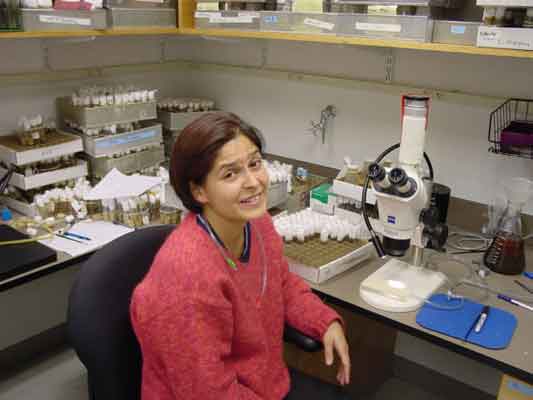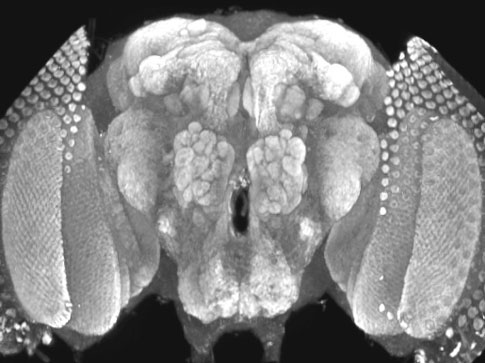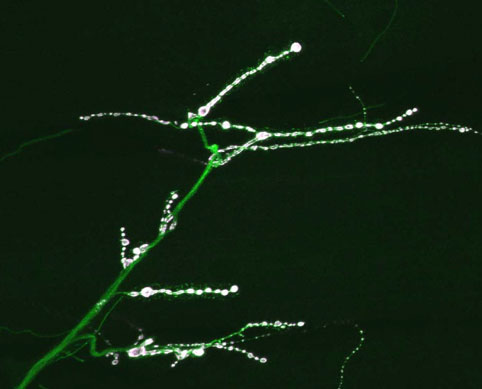|

| |
 Gabrielle Rieckhof, Ph.D.,
2000-2003 Gabrielle Rieckhof, Ph.D.,
2000-2003
B.S. in Biology at Cornell Univ., 1987
Ph.D. in Neuroscience at Columbia, 1998
Gabrielle identified and
characterized a novel role for calcium channels in synaptic wiring.
Voltage-gated calcium channels couple changes in membrane potential to cellular
functions regulated by calcium, including neurotransmitter release and muscle
contraction. The Drosophila
genome encodes three a-subunit
calcium channel genes, including homologs of the mammalian T-type, L-type (Dmca1D),
and N-type (Dmca1A) channels. Gabrielle found that presynaptic
N-type calcium channels not only control neurotransmitter release, but also
regulate synaptic growth at the Drosophila neuromuscular junction. In a
screen for behavioral mutants that disrupt synaptic transmission, alleles of the
N-type calcium channel locus were identified that caused synaptic undergrowth at
the neuromuscular junction. The underlying molecular defect in the most severe
allele was identified as a neutralization of a charged residue in the third S4
voltage sensor. RNAi reduction of N-type calcium channel expression also
reduced synaptic growth. Hypomorphic mutations in syntaxin-1A or n-synaptobrevin,
which disrupt neurotransmitter release, did not affect synapse proliferation at
the neuromuscular junction, suggesting calcium entry through presynaptic N-type
calcium channels, not neurotransmitter release per se, is important for synaptic
growth. The reduced synapse proliferation in
Dmca1A mutants is not due to increased synapse retraction, but
instead reflects a role for calcium influx in synaptic growth mechanisms.
Gabrielle’s findings suggest N-type channels
participate in synaptic growth through signaling pathways that are distinct from
those that mediate transmitter release. Linking presynaptic
voltage-gated calcium entry to downstream calcium-sensitive synaptic growth
regulators may provide a direct activity-dependent mechanism for modifying
synaptic strength.
|




